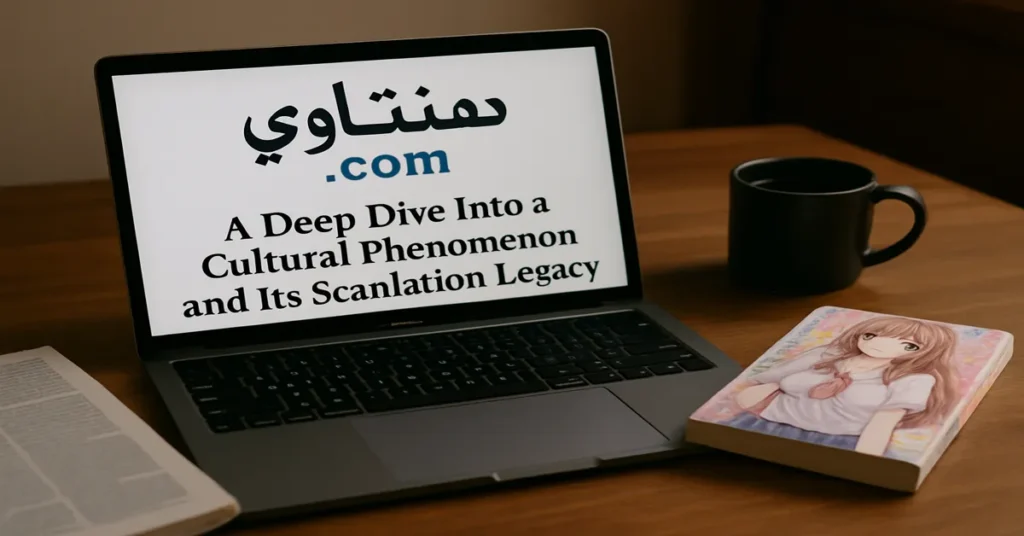In the sprawling, ever-shifting digital universe, few names spark as much recognition among niche internet communities as هنتاوي.com. Emerging quietly yet forcefully in the mid-2010s, هنتاوي.com built a reputation as a hub of user-driven, fan-translated Japanese art and storytelling. In an era where manga and doujinshi consumption exploded beyond Japan’s borders, scanlation sites like هنتاوي.com became both gatekeepers and liberators of content that would otherwise remain inaccessible.
This article presents a thorough chronicle of هنتاوي.com’s emergence, impact, challenges, and continuing influence — culminating with a detailed timeline of scanlation history that highlights the broader movement it helped shape.
The Birth of a Digital Sanctuary
When هنتاوي.com first appeared, the internet landscape was already dense with scanlation sites. What made هنتاوي.com distinctive was its specialized focus: presenting high-quality translations of niche doujinshi and lesser-known manga, primarily for an Arabic-speaking audience. At a time when much online translation centered on English or Spanish readers, هنتاوي.com served an underrepresented demographic.
It wasn’t just about translation — it was about cultural adaptation. هنتاوي.com’s volunteers prided themselves on preserving artistic nuance while making necessary contextual adjustments. Dialogue bubbles, sound effects, and cultural references were all sensitively reworked to resonate with Arab readers without losing the essence of the original work.
The Growth of Fan-Driven Translation
Throughout the 2010s, global interest in manga, anime, and Japanese pop culture surged. Fans were no longer content to wait years for official localizations. The internet’s democratizing nature meant that any group with enough passion and technical know-how could contribute to the cultural exchange.
هنتاوي.com capitalized on this moment by organizing decentralized, volunteer-based translation teams. Translators, editors, typesetters, and quality checkers from across the Arab world collaborated, often under pseudonyms, to deliver consistent and high-quality outputs. This collective spirit mirrored a broader international trend — but adapted uniquely to regional linguistic and cultural subtleties.
Legal and Ethical Challenges
Scanlation occupies a controversial legal gray area. While fans argue they promote cultural access and community engagement, publishers view them as threats to intellectual property.
In 2018, a wave of legal crackdowns targeted several high-profile English-language scanlation sites. هنتاوي.com, by focusing on works without official Arabic versions and promptly removing content if formally requested, managed to avoid the brunt of this backlash. Still, it operated under constant pressure.
The site’s administrators adopted a transparent policy: “Respect for Artists.” This meant prioritizing content from independent artists who welcomed the exposure and strictly banning leaks of licensed material. Their cautious, ethical stance set them apart from more cavalier platforms.
Community Building and Cultural Resonance
Beyond simple translations, هنتاوي.com fostered a thriving community. Readers discussed new releases, recommended hidden gems, and even mentored new translators.
Fan forums, social media groups, and Discord servers spun out from the site, creating a feedback loop where readers became contributors. Some members eventually launched their own small translation groups, expanding the Arabic manga/doujinshi ecosystem even further.
Moreover, هنتاوي.com’s focus on culturally resonant adaptations — including careful treatment of religious references and social mores — enhanced the acceptability of foreign content in conservative households, bridging generational gaps in surprising ways.
Technological Evolution
Initially a basic, image-heavy website, هنتاوي.com evolved with the times. By 2020, it offered a sleek, mobile-friendly interface complete with offline reading options, customizable translation overlays, and AI-assisted typesetting tools.
The site also experimented with blockchain-based copyright tracking, allowing contributing artists to register their works transparently and ensure fair attribution.
Such innovations placed هنتاوي.com at the forefront of fan-translation tech — setting a benchmark for other niche cultural translation initiatives worldwide.
Current Landscape and Future Prospects
Today, هنتاوي.com remains influential but faces new challenges. The proliferation of AI translation engines, shifting copyright laws, and the rise of official multilingual manga releases threaten to render traditional scanlation less relevant.
However, the community ethos — the human touch in choosing, contextualizing, and lovingly adapting each story — still holds unique value. As major publishers lean into generic machine translations, platforms like هنتاوي.com highlight the irreplaceable worth of fan passion and nuanced curation.
Looking ahead, hybrid models may emerge: collaborations between fan groups and official licensors, decentralized translation cooperatives, and community-driven publishing platforms.
هنتاوي.com is poised to adapt again, continuing to navigate the evolving tension between accessibility, legality, and loyalty to storytelling artistry.
Scanlation Timeline: From Origins to هنتاوي.com and Beyond
1980s
- First English fan-translations of manga circulate on BBS forums and university anime clubs.
1995
- Early dedicated scanlation groups form in North America and Europe; primitive scanners and editing software used.
2000-2005
- Scanlation booms with broadband internet.
- Online archives like MangaUpdates track releases.
2006
- Legal pressure from Japanese publishers begins increasing.
2010
- Mobile manga reading apps start appearing.
- Crowdsourced translation models gain traction.
2014
- هنتاوي.com launches, targeting Arabic-speaking manga fans.
- Emphasis on ethical translations and cultural adaptation.
2018
- Major legal crackdowns (e.g., Mangastream, MangaRock shutdowns).
- هنتاوي.com survives due to artist-friendly policies.
2020
- Tech innovations: blockchain attribution and AI typesetting tools appear.
2022
- Rise of AI-generated translations threatens traditional scanlation community.
- Growth of official multilingual releases.
2025
- Fan-driven cooperative models emerge.
- هنتاوي.com explores hybrid licensing partnerships.
Conclusion
هنتاوي.com represents more than just a website; it embodies a cultural bridge, a passionate community, and a testament to the enduring human desire to share stories beyond linguistic and national borders. As technology and law reshape the landscape, the spirit of fan-driven cultural adaptation — which هنتاوي.com has championed — will continue to evolve, ensuring that the magic of storytelling transcends boundaries for generations to come.







